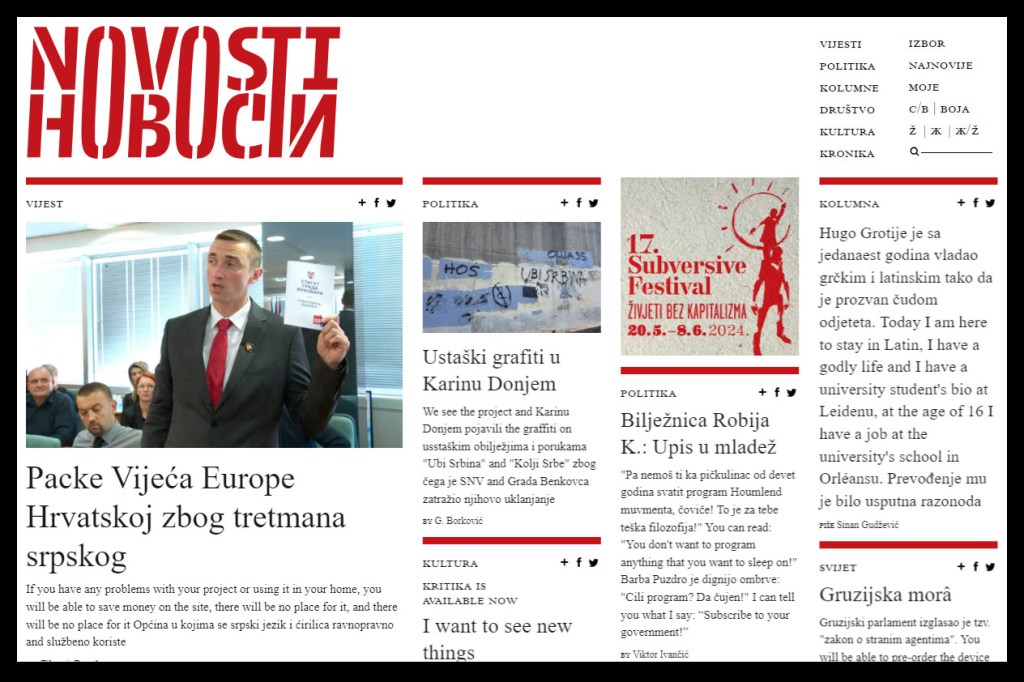Berlin, May 29, 2024 — Croatian authorities should immediately and thoroughly investigate the threats against journalists of Novosti, a weekly newspaper of the Serbian national minority, and ensure their safety and ability to report, the Committee to Protect Journalists said Wednesday.
Novosti journalists have received dozens of insulting, hateful, intimidating, and threatening messages by email, letter, phone, social media comment section, and direct message since April, according to news reports and editor-in-chief Andrea Radak, who spoke with CPJ. Novosti is the most prominent Serbian national minority newspaper in Croatia and is based in the capital, Zagreb.
The wave of attacks began after the April parliamentary election, which brought Croatia’s nationalist right-wing party, Domovinski pokret (DP- Homeland Movement), into a coalition government. DP has campaigned to end state funding for Novosti, claiming the outlet fails to focus exclusively on minority issues.
Radak told CPJ that they filed a criminal complaint with the police and gave initial statements. As of Wednesday, the outlet has yet to receive an update on the investigation.
“Croatian authorities must investigate the dozens of threats received by journalists of the newspaper Novosti, hold the perpetrators to account, and ensure the safety of the outlet’s reporters,” said Attila Mong, CPJ’s Europe representative. “It is completely unacceptable to threaten journalists because of their work, and Croatian authorities must show that such actions have consequences. Ruling government coalition officials should encourage the work of journalists instead of discrediting them or threatening their funding.”
The messages included smears, insults, and indirect intimidation, such as championing Croatia’s fascist government during World War II, Radak told CPJ. They also included threats, such as saying those who conduct pro-Serbia reporting should be driven out of the country and warning that a second “Operation Storm” was coming — a reference to the strategic victory of the Croatian Army against the rebel Croatian Serbs, which helped the Yugoslav People’s Army and Serbian paramilitaries during the 1990s Yugoslav wars.
One of Novosti’s investigative journalists who covers far-right nationalism and requested anonymity, citing safety concerns, received a letter with insults calling his mother a Chetnik — a reference to members of a Serbian nationalist guerilla force during World War II — threats that “we will get you,” and ending with an intimidating salute of the country’s pre-World War II fascist Ustasha regime: “For the homeland — ready.”
Radak told CPJ that similar messages were sent to the independent trade union Croatian Journalists’ Association, as many Novosti journalists are union members, and the union issued a May 14 statement defending the journalists.
In a May 16 editorial, Radak said that Novosti will continue reporting despite threats, verbal attacks, and accusations of being “anti-Croatian.”
CPJ emailed the press office of the Zagreb Police Department and the DP party for comment but did not receive a reply.
Editor’s Note: This alert was updated to correct the description of the Novosti outlet.
